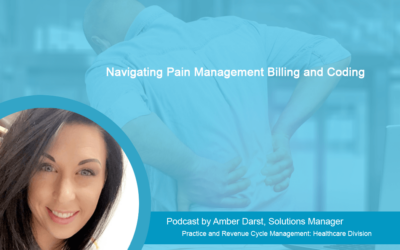Outsource Strategies International (OSI) is an experienced dental billing company providing a comprehensive suite of dental billing services including patient eligibility verifications and other solutions for dental practices.
In today’s podcast, Amber Darst, our Dental Insurance Coordinator, discusses guidelines for billing Accidental Dental Trauma.
Read Transcript
Hi, this is Amber Darst, Dental Insurance Coordinator from Managed Outsource Solutions. Today, I’ll be discussing the proper guidelines for billing accidental dental trauma.
00:12 Types of Accidental Dental Injuries
A direct external impact to the head such as sports injuries, falls, or other accidents can cause injuries to the mouth, including the teeth, lips, gums, tongue, and jawbones. Accidental dental injuries caused by an external force occur frequently in children and young adults. The most common accidental injury is a chipped or broken tooth. As dentists focus on ensuring proper diagnosis, treatment planning and follow‐up to address the dental trauma, partnering with a dental billing service provider is an ideal option to deal with insurance billing and claims processing. These experts are knowledgeable about the rules that apply to filing claims for dental accident injury treatment, which is critical for accurate billing and proper reimbursement.
Examples of traumatic dental injuries are chipped teeth, dislodged teeth, root fractures or knocked-out teeth. When it comes to restoration for these injuries, the options may include fillings, root canals and or crowns, depending on the severity of the damage caused.
01:24 Tips for Billing Dental Services for Accidental Injury
Accurate and timely dental coding and billing is necessary for appropriate reimbursement from payers. Here are the key points with regards to billing for dental accidental services:
- The services provided should be medically necessary. In order for to be covered under medical necessity, the damage must have occurred due to an accidental injury to a sound and healthy, natural tooth.
- Can the services be billed on a dental claim? In most cases, yes. When submitting a dental claim for trauma-related dental services, dentists should clearly indicate on the claim that the services provided are accident-related.
- Knowing payer rules, criteria and definitions is critical to submit accurate claims for trauma-related dental services. While all payer policies may state that dental procedures provided for “accidental external traumatic injury to a sound tooth” will be covered, each payer may have a different verbiage on the matter. Carriers have different definitions of a sound natural tooth as well as trauma-related medical benefits. For instance, some insurance companies define dental trauma as a “non-biting injury to a sound natural tooth.” In most cases, this excludes restorative services for teeth damaged by chewing or biting.
- Many dental payers usually cover services for accidental dental injuries under the patient’s medical plan, instead of dental plan. Coverage is plan-specific. Types of procedures that are usually reimbursed by medical plans include: examinations, diagnostic imaging, crowns and other restorations for chipped/broken teeth, avulsed teeth stabilization, endodontic treatment when needed as a direct result of the traumatic injury, dental implants to replace teeth lost due to the trauma, and in rare cases, denture damage caused by an external injury.
To assure proper claim submission and billing, practices should perform dental insurance verifications before treatment is provided. This involves checking the patient’s insurance information by contacting the insurance company. In addition to verifying demographic information, dental practices should check whether the patient’s policy covers the required services, if the services can be billed on a dental claim, if a preauthorization is required and then also if there is a time line as to when the work has to be completed.
Successful billing of dental accident injuries also depends on proper documentation. The documentation should clearly specify the patient’s complaint and how the accident occurred. all the chart notes, diagnostic radiographs, and a complete treatment plan should be submitted with the claim as well.
Navigating the confusing rules of dental billing would be much easier with the help of an experienced dental billing service provider. These expert billing companies that provide dental billing services will also contact the medical carrier to ask about their trauma coverage policies for that patient as well.
And that’s it.
I hope this helps. But always remember that documentation and a thorough knowledge of payer regulations and guidelines is critical to ensure accurate reimbursement for the procedures performed.
Thanks for listening in!



